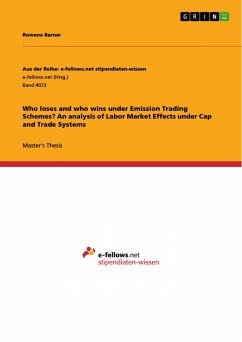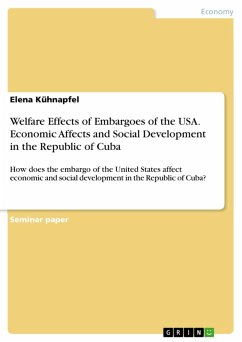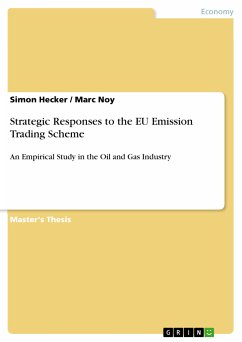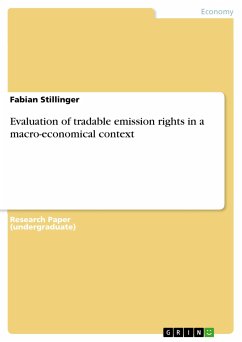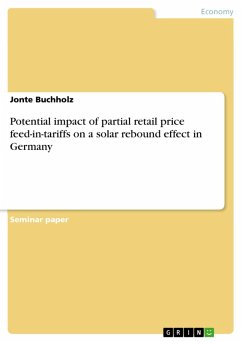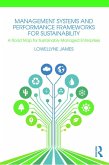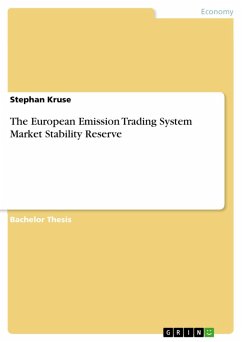Master's Thesis from the year 2021 in the subject Economy - Environment economics, grade: 1,0, , language: English, abstract: The European Union's Emission Trading System (EU ETS) is the main policy instrument to cut greenhouse gas emissions within the EU. This work specifically focusses on the labor market cost effects of the introduction of the EU ETS, separated by the individual effects for the three economic actors: firms, households, and the state. In the form of a literature analysis, the main results for these individual actors are recontrasted and the central research question of who wins and who loses under EU emissions trading is answered. It could be found that households, in particular low-income groups, are the main losers of the system, since they substantially bear the higher production costs of firms. Firms, on the other hand, although being the direct emitters of greenhouse gases, are not significantly affected by the system through the creation of various compensation mechanisms. Therefore, this analysis classifies them as the winners of the system. Moreover, the state is also considered a winner of the EU ETS, as it directly receives the profits from the auctioning of emission rights. In turn, the redistribution mechanism it chooses largely determines the extent of losses and the costs borne by households.
Dieser Download kann aus rechtlichen Gründen nur mit Rechnungsadresse in A, B, BG, CY, CZ, D, DK, EW, E, FIN, F, GR, HR, H, IRL, I, LT, L, LR, M, NL, PL, P, R, S, SLO, SK ausgeliefert werden.

